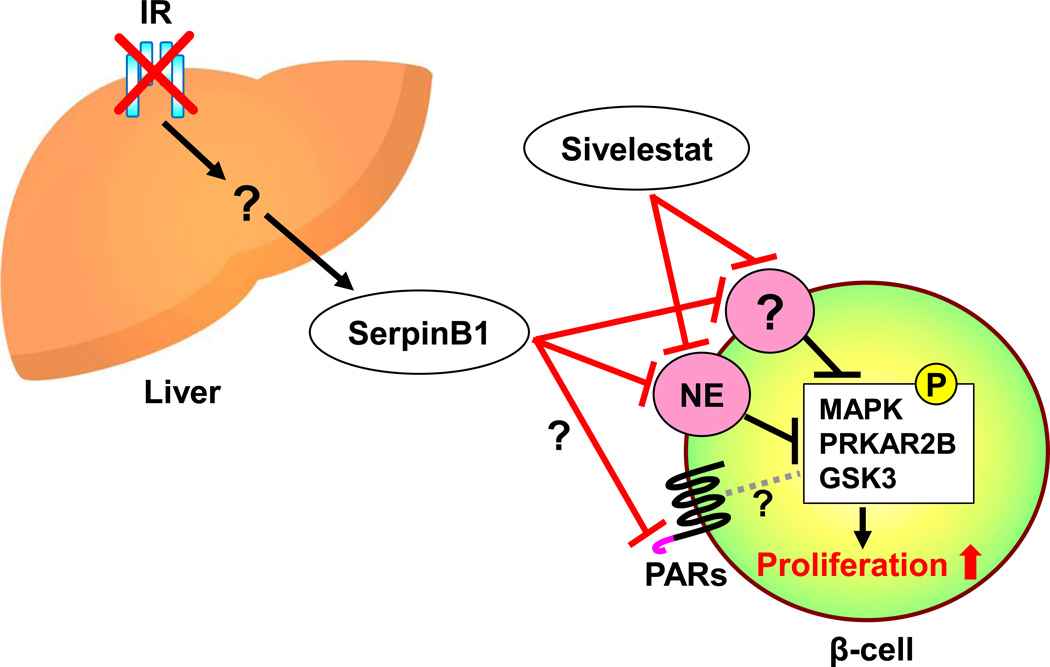Fig. 2.
Schematic of the proteins that interact with SerpinB1, a protease inhibitor, in promoting human β-cell proliferation. Hepatic insulin resistance increases the expression and secretion of SerpinB1. SerpinB1, or Sivelestat which also exhibits neutrophil (or pancreatic) elastase (NE) inhibitor activity, potentiates human β-cell proliferation. Although inhibition of PE is associated with β-cell proliferation, the effects of SerpinB1 on other proteases (e.g. proteinase 3 or cathepsinG) which also could contribute to the proliferation effects are not fully explored. Upon stimulation with SerpinB1, the phosphorylation levels of MAPK, PRKAR2B, and GSK are elevated in β-cells. Other pathways that may mediate the effects of SerpinB1 include action via the protease-activated receptors (PARs). GSK3, glycogen synthase kinase-3; IR, insulin receptor; PRKAR2B, protein kinase cAMP-dependent type II regulatory subunit beta; MAPK, mitogen-activated protein kinases.

